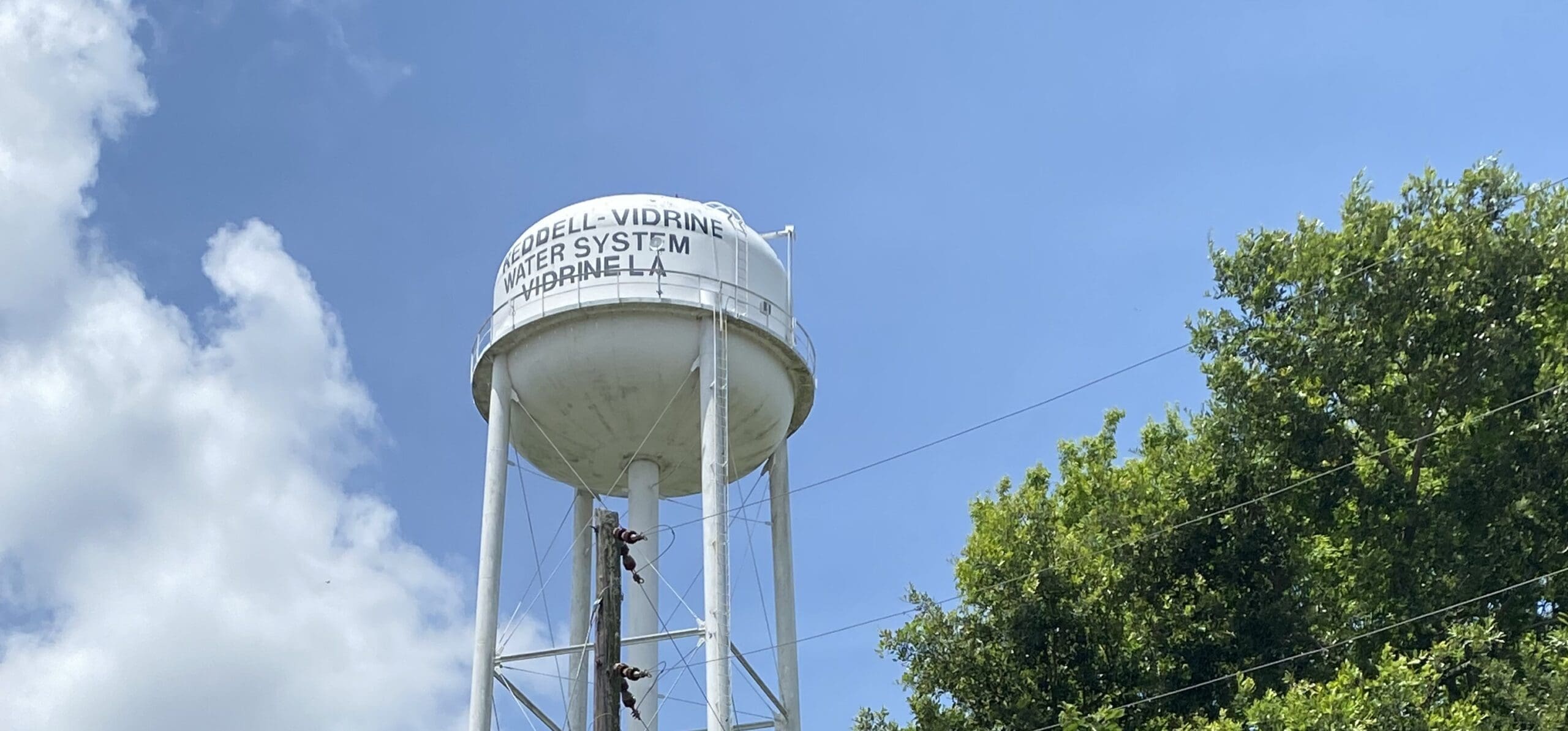When Elizabeth Yvette Jagneaux stepped into her role at the Reddell Vidrine Water District (RVWD) in Ville Platte, located in south-central Louisiana’s Evangeline Parish, the system was in chaos. Hired with just a day’s notice in April 2024, she walked into an office that lacked structure, accountability, and critical information. Files were incomplete. Customer records were outdated. And when she started asking questions, the answers were either missing — or alarming.
“I was drowning,” she recalled. “We were in real trouble.”
The water system had no accurate budget, no functioning emergency response plan, and no procedures to track daily financial activity. Payroll was incomplete. Employee records hadn’t been submitted to the Louisiana Workforce Commission (LWC) in over a year. To make matters worse, the previous clerk had embezzled over $30,000, throwing the 2023 financials into disarray and placing the water system in jeopardy.
Yvette, a retired schoolteacher with 33 years of experience in Evangeline Parish classrooms, was overwhelmed. But she was also determined.
After a referral from a friend at Louisiana Rural Water Association (LRWA), she reached out to the Community Infrastructure Team at Communities Unlimited (CU) for help.
“I looked them up, and I just put out a message that said, ‘Help.’ And they answered."
— Elizabeth Yvette Jagneaux, Reddell Vidrine Water District Clerk
CU’s Louisiana State Coordinator Chris Brunson connected Yvette with Community Environmental Management Specialist Stacey Scarce, who first reached out in November 2024. Over the next several months, Stacey helped position RVWD from the brink of collapse to a path toward long-term stability.
Building a Foundation
One of the first things Stacey tackled was helping Yvette complete the system’s Emergency Response Plan (ERP). Yvette had started it but was missing critical action items. Stacey reviewed the document, completed the necessary sections, and helped Yvette submit it for approval — just in time to help the utility avoid regulatory trouble.
The next priority: the budget.
There hadn’t been an accurate budget for four years. Because of the embezzlement, the 2023 records were unusable. So, Stacey reconstructed a 2023 budget based on historical trends from 2020 to 2022, then used that baseline to project RVWD’s budgets through 2026. She trained Yvette on how to use Excel spreadsheets — right down to typing formulas and fixing data entry errors.
With Stacey’s assistance, Yvette learned how to fill out U.S. Department of Agriculture (USDA) forms 442-2 and 442-7, essential documents required for grant and loan compliance. They pulled profit and loss statements together, line by line, working alongside RVWD’s accountant to understand every detail.
The budget, in turn, helped RVWD submit accurate numbers to USDA and resolve multiple regulatory issues. At one point, the system had 20 violations with the Louisiana Department of Health (LDH). By February 2025, that number was zero.
Cleaning House
Early on, Yvette noticed the extent of the dysfunction. Hundreds of customer files were outdated or belonged to deceased clients. She created a Facebook page and launched a campaign to get residents to come in and update their accounts. On some days, more than a dozen people packed the office. But she didn’t quit.
Behind the scenes, CU helped Yvette navigate issues most new clerks wouldn’t expect. She had questions about employee posters, hiring protocols, daily cash tracking, and state labor requirements. Stacey answered what she could, and when she couldn’t, she found the answers elsewhere.
“Stacey brought me a full list of what we were missing — and encouraged me every step of the way,” Yvette said.
Together, they developed job descriptions, an employee handbook, a sexual harassment policy, and a system for documenting incoming and outgoing funds. Yvette even created a custom daily ledger system to stay on top of account activity.
Turning the Corner
Now, a year into the job, Yvette sees light at the end of the tunnel. With support from their operator, the utility identified and corrected issues like nonpaying customers and unbilled connections — adding more than 30 previously untracked accounts.
Thanks to $70,000 in state funding through Appropriations Act 774, RVWD is preparing to repair its elevated water tower, which had been under violation. That tower sits just behind the office — a daily reminder of how far the system has come.

“There was a point where I thought about leaving. But with Stacey’s help and encouragement, I hung in there. Now I’m not working 50-hour weeks anymore. We’re compliant. We’re organized. And we’re finally moving forward. I’m proud of what we’ve done. Our heads are above water now.”
— Elizabeth Yvette Jagneaux

